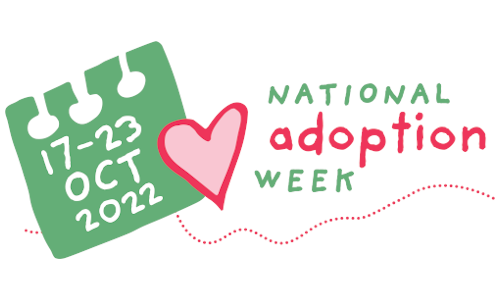
CoramBAAF Adoption Consultant, Jane Poore, talks about the importance of identity and the support available
Ahead of National Adoption Week we sat down with our Adoption Consultant, Jane Poore, to learn a little more about her role, the importance of National Adoption Week and this year's theme of identity and relationships and what support is available.
Tell us a little about yourself.
Hello, my name is Jane Poore. I live in West Dorset. I'm married. I've got three sons who are all in their 20s and also a dog. Anyone who knows me at all well will know that I do lots of knitting!
What is your role at CoramBAAF?
I am the Adoption Consultant in the Policy Research and Development team at CoramBAAF and I started this role in June 2021. I took over from Elaine Dibben who had been doing the role for a really long time and left very big shoes to fill.
Why is National Adoption Week important?
National Adoption Week is really important in raising the profile of adoption and the role it plays in offering permanence for children. It's an opportunity for us to think about a particular aspect of adoption and look at how we can work together to improve practice or provide support.
This year, National Adoption Week is focusing on the significance of identity for adopted people. A sense of identity is really important for everyone, for healthy, emotional well-being. But for adopted people it can be particularly challenging as they may need help or some support in order to access information and memories, or make contact with people in order to understand their life story and history.
What support is available for adopted people and their families to explore identity issues and manage relationships?
Ideally adopted adults would be able to explore their history and their life story with those who are closest to them, which maybe their adopted family, but not always. It could be somebody else in their life that's really close to them. Hopefully they would grow up with a sense of knowing where they came from and who they are. But sometimes individuals may need some additional support to find out information or work through emotions which come with that information.
Post adoption support teams exist in all the regional adoption agencies across the country and they would be a good starting point for somebody. Alternatively, if they know the agency that they were adopted through they could make contact there. There is help available, and if necessary funding can be applied for through the adoption support fund for therapeutic support if it's needed and the individual fits the criteria.
What are the challenges for social workers in supporting adopted people to develop and maintain relationships with birth parents, siblings and foster carers?
The contact plans are written at the time that a child or young person is placed with their adoptive family. It's really difficult to predict what is going to be sustainable for many years into the future. Situations change for all the individuals involved - they change for the adopted person, but also their families and their siblings.
There may be times in their life where they don't want to have contact with someone, or they might want more contact with someone or a different form of contact from the one established.
Plans need to be reviewed regularly in order that they continue to meet the needs of all those involved for many years. What is a sensible plan for a two-year-old is not necessarily going to fit when they are 15 or 16 and they're actually looking for answers to questions they have about their identity. It's a challenge actually writing plans at the time in order that everybody is supported in getting what they need from them. If it doesn’t work for a young person then they are going to seek answers themselves, and we know that a high proportion of young people do this.
There are challenges on all sides. I think things change and so the challenge for the social worker is to write a plan that is flexible enough but includes all those people that are important for that young person to have in their life.
